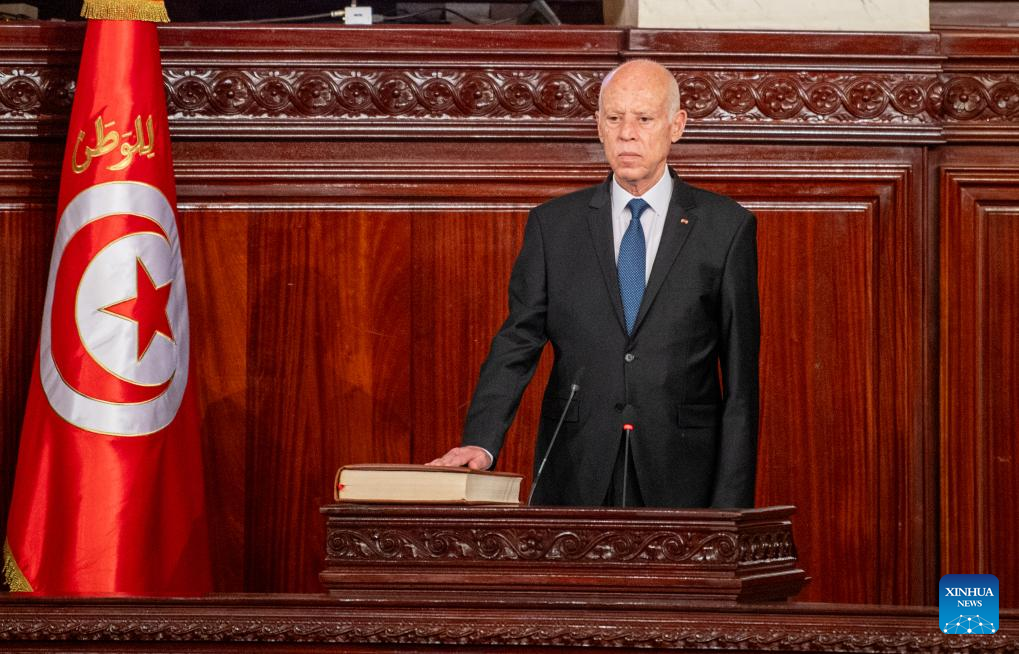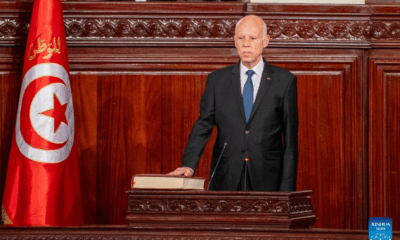Lifestyle
Tunisian President Grants Clemency to Facebook Activist Sentenced to Death

Saber Ben Čušan, a Tunisian activist sentenced to death for social media posts deemed offensive to President Kais Saied, has received a presidential pardon and has been released from prison. His lawyer, Usama Butelja, and his brother, Jamal Čušan, confirmed the news, which has been reported by various international media outlets.
Čušan was convicted in January 2024 for “insulting the president, the Minister of Justice, and the judiciary,” as well as for spreading false news. His sentencing by a court in Nabeul drew widespread condemnation from human rights organizations, including Amnesty International, which described the death penalty as a troubling escalation of repression in Tunisia.
International Outcry Over Sentencing
The case garnered significant attention both locally and internationally. Human rights advocates expressed shock at the severity of the punishment, arguing that it represented an alarming trend in Tunisia, where freedom of expression has come under increasing threat. Amnesty International highlighted the implications of such a sentence, noting that it undermines the progress made since the 2011 revolution, which initially promised greater democratic freedoms.
Čušan was arrested during a crackdown on dissent related to political criticism on social media. His posts were reportedly critical of government policies and actions, leading to a swift legal response that many observers believe reflects an environment hostile to free speech. Following his conviction, numerous protests erupted, demanding his release and challenging the government’s stance on free expression.
Presidential Pardon and Future Implications
The decision to grant clemency to Čušan raises questions about the current administration’s approach to dissent and criticism. While the pardon may alleviate immediate concerns regarding Čušan’s fate, it does not erase the underlying issues surrounding freedom of speech in Tunisia. Many fear that this case could set a precedent for future actions against activists and critics of the government.
Čušan’s release marks a significant moment in a country still grappling with the balance between security and civil liberties. As Tunisia continues to navigate its post-revolutionary landscape, the implications of this case will likely resonate well beyond its borders, affecting how governments and citizens engage in discourse about rights and freedoms.
The international community will be closely monitoring Tunisia’s trajectory, as the struggle for free expression remains a pivotal issue in the region.
-

 Entertainment1 month ago
Entertainment1 month agoAnn Ming Reflects on ITV’s ‘I Fought the Law’ Drama
-

 Entertainment2 months ago
Entertainment2 months agoKate Garraway Sells £2 Million Home Amid Financial Struggles
-

 Health1 month ago
Health1 month agoKatie Price Faces New Health Concerns After Cancer Symptoms Resurface
-

 Entertainment2 months ago
Entertainment2 months agoKim Cattrall Posts Cryptic Message After HBO’s Sequel Cancellation
-

 Entertainment1 month ago
Entertainment1 month agoWhere is Tinder Swindler Simon Leviev? Latest Updates Revealed
-

 Entertainment2 months ago
Entertainment2 months agoMasterChef Faces Turmoil as Tom Kerridge Withdraws from Hosting Role
-

 Entertainment3 months ago
Entertainment3 months agoSpeculation Surrounds Home and Away as Cast Departures Mount
-

 World1 month ago
World1 month agoCole Palmer’s Mysterious Message to Kobbie Mainoo Sparks Speculation
-

 Entertainment1 month ago
Entertainment1 month agoITV’s I Fought the Law: Unraveling the True Story Behind the Drama
-

 Entertainment3 weeks ago
Entertainment3 weeks agoCaz Crowned Winner of The Great British Sewing Bee, Overjoyed by Triumph
-

 Entertainment2 months ago
Entertainment2 months agoAldi Launches Cozy Autumn Fragrance Range Ahead of Halloween
-

 Entertainment2 months ago
Entertainment2 months agoMarkiplier Addresses AI Controversy During Livestream Response













